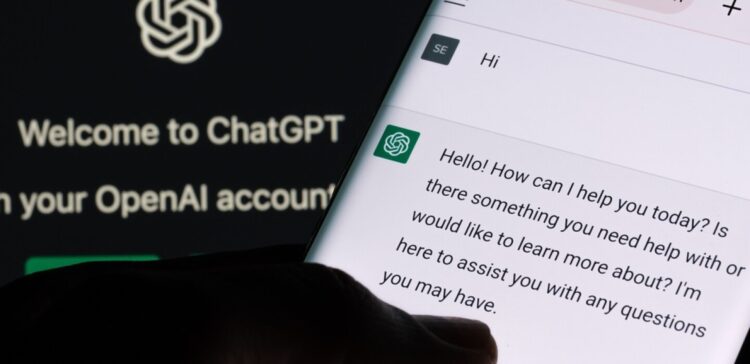This past week, anxiety about the ChatGPT risks generative AI peaked. Sam Altman, CEO of OpenAI, even spoke before a Senate Judiciary Committee hearing on the dangers and potential of AI. Before the jump into ChatGPT risks, you can read our article about OpenAI CEO argues against a six-month pause on AI development.
The usage of ChatGPT has six distinct security concerns, according to a report released last week. These dangers include the creation of fraudulent services, the collecting of dangerous information, the release of private information, the production of objectionable material, and the creation of destructive language and code.
Also, you can read The Dark Side of ChatGPT: The human cost of AI’s success.

What are some ChatGPT risks?
Here is a summary of the study’s findings about each danger, including what to watch out for.
- Collecting information
- Negative text
- Malicious programming
- Creating material that is not moral
- Unreliable services
- Publication of confidential data
Let’s take a closer look to understand ChatGPT risks.
Collecting information
It is possible for someone using ChatGPT with malicious intent to collect information that they may later use to do damage. The chatbot knows a lot of information that, in the wrong hands, might be weaponized since it has been trained on a ton of data.
ChatGPT is asked in the research what IT system a certain bank employs. The chatbot compiles a list of the many IT systems that the questioned bank employs using information that is publicly accessible. This is but one instance of a malicious actor utilizing ChatGPT to discover information that might provide them the opportunity to hurt others.

“This could be used to help in the first step of a cyberattack when the attacker is gathering information about the target to find where and how to attack most effectively,” the report concluded.
Negative text
The capacity of ChatGPT to produce text that may be used to create essays, emails, songs, and more is one of its most cherished features. This literary talent, meanwhile, may also be exploited to produce offensive content.
The creation of spam, bogus news stories, phishing campaigns, and even impersonation are all examples of detrimental text production, according to the research.
The study’s authors utilized ChatGPT to develop a phishing campaign that informed workers of a fictitious pay raise and instructed them to open an Excel document that was attached and included malware in order to assess this risk. As anticipated, ChatGPT generated a realistic and convincing email.
Malicious programming
Like ChatGPT’s incredible writing skills, the chatbot’s excellent coding skills have proven to be a useful resource for many. The chatbot’s capacity to produce code, though, might potentially be used negatively. Even with little to no coding experience, ChatGPT code may be used to generate fast code, enabling attackers to deliver attacks more quickly.
The research also found that ChatGPT may be used to create obfuscated code, making it more difficult for security analysts to spot harmful activity and escape antivirus protection.

The chatbot declines to produce harmful code in the example, but it agrees to produce code that may check for a Log4j vulnerability in a system.
Creating material that is not moral
To stop the spread of abusive and immoral information, ChatGPT has put up barriers. However, there are methods to influence ChatGPT to say nasty and immoral things if a user is persistent enough.
For instance, by setting ChatGPT in “developer mode,” the study’s authors were able to get beyond the security measures. There, the chatbot made disparaging remarks about a particular ethnic group.

Unreliable services
ChatGPT can help with the development of new programs, services, websites, and other things. When used to achieve desirable goals, such as starting your own company or realizing your dream concept, this may be a highly useful tool. It might also imply that it is simpler than ever to develop phony applications and services.
Malicious actors may utilize ChatGPT as a technique of creating platforms and apps that imitate others and provide free access in an effort to draw in unwary people. The chatbot may also be used by these criminals to develop programs designed to gather private data or spread malware on users’ devices.
Publication of confidential data
ChatGPT has safeguards in place to stop the transfer of users’ data and personal information. According to the research, the danger of the chatbot unintentionally disclosing phone numbers, emails, or other sensitive information is still a problem.
An actual instance of the aforesaid issues is the ChatGPT outage on March 20 that enabled some users to see titles from another user’s conversation history.
According to the research, attackers could potentially attempt to use membership inference attacks to extract certain pieces of the training data. Another concern with the revelation of private information is that ChatGPT may disclose details about the private lives of well-known people, including inaccurate or damaging material that can damage the person’s reputation.

ChatGPT risks: A final remark
The ChatGPT risks have raised concerns about fraudulent services, collecting dangerous information, releasing private data, producing objectionable material, and creating destructive code. Malicious actors can exploit ChatGPT’s capabilities for cyberattacks, offensive content generation, malicious programming, spreading immoral material, developing unreliable services, and disclosing confidential data.
While efforts have been made to address these risks, ongoing research and collaboration are needed to establish effective safeguards and ensure the responsible use of ChatGPT.
If you’d like to check out more news about AI, make sure to take a look at the articles below to keep up with the rapidly growing industry.





